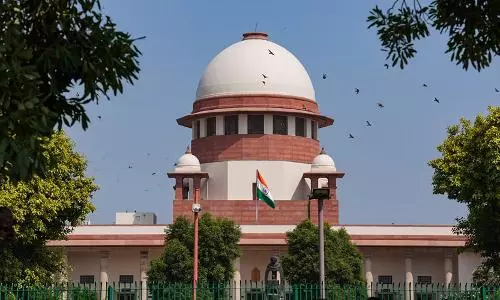
Gyanvapi: Varanasi court grants four more weeks to complete ASI survey
text_fieldsVaranasi: A Varanasi court on Friday granted an additional four weeks to the Archaeological Survey of India (ASI) to complete the scientific survey of the Gyanvapi mosque complex and submit its report.
A copy of the recent order was uploaded late Friday evening.
Earlier, government counsel Rajesh Mishra had said that eight more weeks were provided by the court for the completion of the survey work.
District Judge A K Vishvesh dismissed the mosque management committee's objection and provided additional time to the ASI, he said.
The ASI is carrying out the scientific survey of the Gyanvapi mosque premises, next to Kashi Vishwanath temple in Uttar Pradesh's Varanasi, to determine whether the 17th-century mosque was constructed over a pre-existing structure of a Hindu temple.
The survey began after the Allahabad High Court upheld a Varanasi district court order and ruled that the step is "necessary in the interest of justice" and will benefit both the Hindu and Muslim sides.
Madan Mohan Yadav, Advocate of the Hindu side stated that the court had earlier given time till September 4 to survey the Gyanvapi complex except the Wazoo khana and submit its report. As the survey work was not complete, the advocate of the ASI sought additional time of eight weeks to complete the survey work.
During the last hearing, the Muslim side objected to it. They alleged that ASI is digging in the basement as well as other places of the Gyanvapi complex without permission and accumulating debris on the western wall of the structure, which may pose a risk of collapse of the structure.
The ASI survey work resumed on August 4 and the Varanasi court, on the same day, also granted the ASI an additional month to complete the survey, extending its original deadline from August 4 to September 4.
The mosque side also went to the Supreme Court against the Allahabad HC's order. The apex court had on August 4 refused to stay the Allahabad High Court order on an ASI survey.
With inputs from PTI























